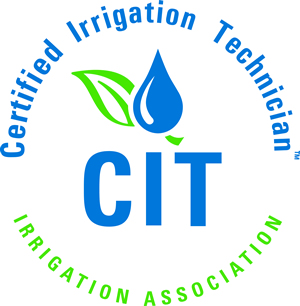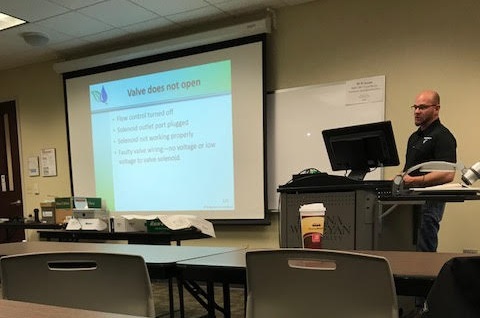
by Tom Barrett | Jan 8, 2019
Now’s the Time to Become a CIT!
On February 28, 2019, Wolf Creek Company is sponsoring a full-day CIT training session.
You’ll learn about gluing and repairing PVC pipe, installing nozzles and adjusting heads, setting and repairing electric valves, and field and controller wiring techniques.
This is a recommended review for the CIT exam. The session will begin at 8:00 a.m. at Wolf Creek Company, 6700 Huntley Road in Columbus, Ohio.
Cost is $100 per attendee, and seats are limited!
Contact your Wolf Creek Representative
for more information.

Why Certification?
Certification gives you a competitive edge. By becoming a Certified Irrigation Technician you can:
 Add instant credibility with customers and employers.
Add instant credibility with customers and employers.
 Increase job opportunities.
Increase job opportunities.
 Demonstrate your commitment to efficient water management.
Demonstrate your commitment to efficient water management.
 Qualify for the EPA WaterSense program.
Qualify for the EPA WaterSense program.
CIT Overview
CITs are field technicians who install, maintain and repair irrigation systems. Typical duties include:

 Cutting and joining pipe, as well as knowing the limitations of different piping systems and understanding basic hydraulics.
Cutting and joining pipe, as well as knowing the limitations of different piping systems and understanding basic hydraulics.
 Laying out and installing piping and water delivery components; backflow prevention components; mechanical, hydraulic and electrical irrigation controls; and other irrigation system components.
Laying out and installing piping and water delivery components; backflow prevention components; mechanical, hydraulic and electrical irrigation controls; and other irrigation system components.
 Troubleshooting and repairing irrigation components and systems.
Troubleshooting and repairing irrigation components and systems.
Becoming a Certified Irrigation Technician
To become a CIT, you must:
 Register for the exam. Recommended: six months or 1,000 hours of irrigation-related field experience.
Register for the exam. Recommended: six months or 1,000 hours of irrigation-related field experience.
 Pass the irrigation technician exam. The three-hour exam includes 100 equally weighted, multiple-choice questions on basic irrigation principles, basic electrical principles and basic hydraulics.
Pass the irrigation technician exam. The three-hour exam includes 100 equally weighted, multiple-choice questions on basic irrigation principles, basic electrical principles and basic hydraulics.
 Comply with the Select Certified Code of Ethics.
Comply with the Select Certified Code of Ethics.
 Remain in good standing. CITs must submit 20 continuing education units per two-year cycle.
Remain in good standing. CITs must submit 20 continuing education units per two-year cycle.
CIT Exam Fees
 Irrigation Technician Exam Fee — $175 (IA Member), $300 (Nonmember)
Irrigation Technician Exam Fee — $175 (IA Member), $300 (Nonmember)
- Exam Retake Fee — $175 (IA Member), $300 (Nonmember)
- Annual Renewal Fee (one certification) — $50 (IA Member), $100 (Nonmember)
- Annual Renewal Fee (two or more certifications) — $100 (IA Member), $150 (Nonmember)

by Tom Barrett | Nov 6, 2018
CIT Training Sponsored by Wolf Creek
CIT training is scheduled from 8:00 a.m. to 5:00 p.m. at Wolf Creek’s Columbus branch, located at 6700-B Huntley Road in Columbus, Ohio.
To register, contact your Wolf Creek representative, or click the registration box above. Space is limited; cost for the training is $100 per attendee.
 Don’t miss out on this opportunity to add instant credibility to employers and increase your marketability, all while demonstrating your commitment to efficient water management!
Don’t miss out on this opportunity to add instant credibility to employers and increase your marketability, all while demonstrating your commitment to efficient water management!
What Exactly Does a CIT Do?
Certified Irrigation Technicians install, maintain and repair irrigation systems.
 This entails knowing the limitations of different piping systems and understand basic hydraulics, in order to properly cut and join pipe.
This entails knowing the limitations of different piping systems and understand basic hydraulics, in order to properly cut and join pipe.
CIT’s lay out, install and repair all irrigation system components, including:
- Piping and water delivery components
- Backflow prevention components
- Mechanical, hydraulic and electrical irrigation controls
To Become a CIT You Must:
- Pass the irrigation technician exam. The three-hour exam includes 100 equally weighted, multiple-choice questions on basic irrigation principles, basic electrical principles and basic hydraulics.
CIT Exam Fees
- Irrigation Technician Exam Fee — $175 (Member), $300 (Nonmember)
- Annual Renewal Fee (one certification) — $50 (Member), $100 (Nonmember)
- Annual Renewal Fee (two or more certifications) — $100 (Member), $150 (Nonmember)

by Tom Barrett | Apr 4, 2018
CIT Trainees Learn Basics,
Prepare for Exam
Last month, 18 Ohio-area landscaping contractors participated in Certified Irrigation Technician (CIT) training at two separate sites. These Irrigation Association training sessions were sponsored by Wolf Creek Company and Rain Bird.
During the training, contractors learned the basics of hydraulics and irrigation system installation and maintenance. In addition to an overview of irrigation system components and how they operate, attendees learned how to:
- Glue and repair PVC pipe
- Install nozzles and adjust sprinkler heads
- Set and repair electric valves
- Utilize various field and controller wiring techniques.

Trainees also prepared for the CIT exam, a prerequisite to receiving certification.
CIT Overview
A CIT is an entry-level irrigation field professional, and it is the newest certification offered by the Irrigation Association. CITs install, maintain and repair irrigation systems. Their responsibilities include:
- Cutting and joining pipe, with an understanding of basic hydraulics, as well as the limitations of different piping systems.
- Laying out and installing pipes and water delivery components; backflow prevention components; mechanical, hydraulic and electrical irrigation controls; and other irrigation system components.
- Troubleshooting and repairing all irrigation components and systems.
Becoming a CIT
Certification gives you a competitive edge. By becoming a CIT, you can:
- Add instant credibility with customers and employers.
- Increase job opportunities.
- Demonstrate your commitment to efficient water management.
- Qualify for the EPA WaterSense program.
Interested? Here’s what you have to do:
- Pass the irrigation technician exam. The three-hour exam includes 100 equally weighted, multiple-choice questions on basic irrigation principles, basic electrical principles and basic hydraulics.
CIT Exam Fees
- Irrigation Technician Exam Fee — $175 (Member), $300 (Nonmember)
- Exam Retake Fee — $175 (Member), $300 (Nonmember)
- Annual Renewal Fee (one certification) — $50 (Member), $100 (Nonmember)
- Annual Renewal Fee (two or more certifications) — $100 (Member), $150 (Nonmember)
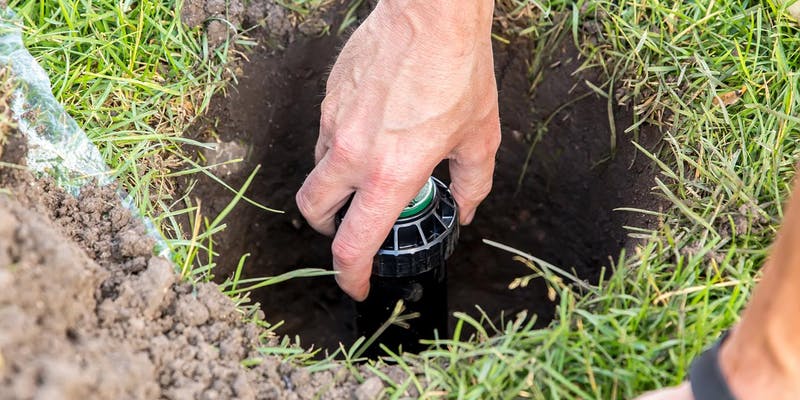

![]() Add instant credibility with customers and employers.
Add instant credibility with customers and employers.![]() Increase job opportunities.
Increase job opportunities.![]() Demonstrate your commitment to efficient water management.
Demonstrate your commitment to efficient water management.![]() Qualify for the EPA WaterSense program.
Qualify for the EPA WaterSense program.![]()
 Cutting and joining pipe, as well as knowing the limitations of different piping systems and understanding basic hydraulics.
Cutting and joining pipe, as well as knowing the limitations of different piping systems and understanding basic hydraulics.![]() Laying out and installing piping and water delivery components; backflow prevention components; mechanical, hydraulic and electrical irrigation controls; and other irrigation system components.
Laying out and installing piping and water delivery components; backflow prevention components; mechanical, hydraulic and electrical irrigation controls; and other irrigation system components.![]() Troubleshooting and repairing irrigation components and systems.
Troubleshooting and repairing irrigation components and systems.![]() Register for the exam. Recommended: six months or 1,000 hours of irrigation-related field experience.
Register for the exam. Recommended: six months or 1,000 hours of irrigation-related field experience.![]() Pass the irrigation technician exam. The three-hour exam includes 100 equally weighted, multiple-choice questions on basic irrigation principles, basic electrical principles and basic hydraulics.
Pass the irrigation technician exam. The three-hour exam includes 100 equally weighted, multiple-choice questions on basic irrigation principles, basic electrical principles and basic hydraulics.![]() Comply with the Select Certified Code of Ethics.
Comply with the Select Certified Code of Ethics.![]() Remain in good standing. CITs must submit 20 continuing education units per two-year cycle.
Remain in good standing. CITs must submit 20 continuing education units per two-year cycle. Irrigation Technician Exam Fee — $175 (IA Member), $300 (Nonmember)
Irrigation Technician Exam Fee — $175 (IA Member), $300 (Nonmember)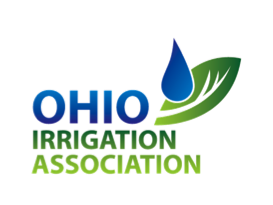

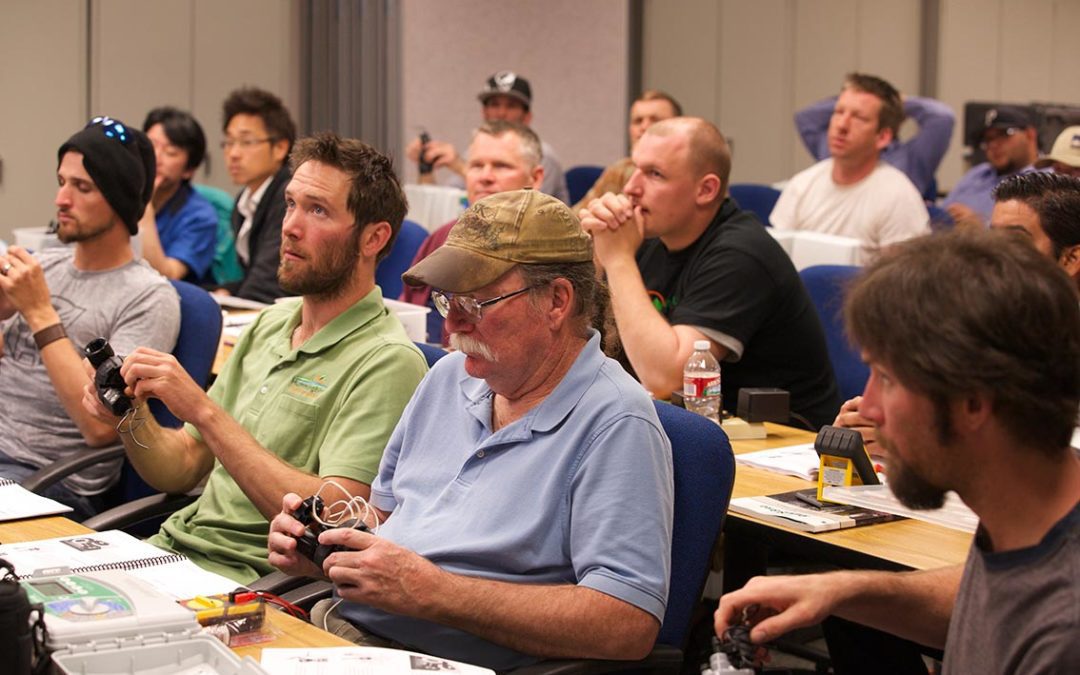
 Don’t miss out on this opportunity to add instant credibility to employers and increase your marketability, all while demonstrating your commitment to efficient water management!
Don’t miss out on this opportunity to add instant credibility to employers and increase your marketability, all while demonstrating your commitment to efficient water management! This entails knowing the limitations of different piping systems and understand basic hydraulics, in order to properly cut and join pipe.
This entails knowing the limitations of different piping systems and understand basic hydraulics, in order to properly cut and join pipe.